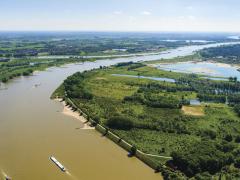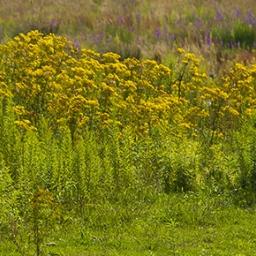Business for Biodiversity
Nature and biodiversity are being lost worldwide, and the capacity of ecosystems to provide services to people is deteriorating. Most of the targets for 2020 of the UN Convention on Biological Diversity (CBD) will not be achieved, and if the trends of the last decades persist, biodiversity will continue to decline. A new agreement to end biodiversity loss and promote nature restoration is presently being negotiated by the 195 countries that signed the convention. This policy brief describes what companies are doing and could be doing to contribute to the reversal of biodiversity loss and even to restore nature, and looks at their strategies and motives for doing so.
In addition, the policy brief provides an intervention logic for government policies to mobilise businesses to contribute to these targets.
Fundamental change needed to achieve biodiversity targets
In 2019, the Intergovernmental Science-Policy Platform on Biodiversity and Ecosystem Services (IPBES) concluded that biodiversity goals can only be achieved through transformative change, with fundamental changes in production and consumption. These changes require action from the whole of society, with a crucial role for businesses and the financial sector. This policy brief summarises research by PBL and partner institutes on the nature-inclusive activities by Dutch businesses and financial institutions. It provides an analysis of the potential of the private sector to contribute to conserving and restoring nature, and identifies the various related strategies and motivations.
Towards new goals and implementation mechanisms for biodiversity
The Dutch Government has acknowledged the IPBES conclusions and pursues policies to stimulate sustainable and nature-inclusive entrepreneurship. The EU Biodiversity Strategy is also aimed at integrating biodiversity into investment decisions. Currently, negotiations are ongoing between the 195 countries that signed the convention on targets for the 2030–2050 period, and on strengthening implementation mechanisms. Within the CBD, there is a need for insights into how to involve societal parties and especially business and finance in achieving the targets. This policy brief provides lessons learned from Dutch experience and describes an intervention logic to mobilise companies with different types of motives. The insights are useful for governments that — both in the Netherlands and in other countries — actively collaborate with companies and financial institutions and involve them in achieving biodiversity goals.
Motives for nature-inclusive entrepreneurship
This policy brief is based on research conducted by PBL, RSM (Rotterdam School of Management) and other research institutes on Dutch nature-inclusive entrepreneurship. It provides an analysis of the potential of companies to contribute to the conservation and restoration of nature, identifies the related company strategies, and provides an intervention logic for governments based on their motives. The policy brief concludes with suggestions on how businesses could contribute to the post-2020 biodiversity framework currently under negotiation in the CBD.
Consequences of the Corona pandemic
This analysis was completed before the Corona pandemic, but is still relevant. If companies are expected to contribute to the post-2020 CBD targets and to stop further biodiversity loss, government needs to consider — even more so than before the outbreak of the corona pandemic — what would be the most appropriate role and which instruments to use to stimulate companies to do so.
Authors
Specifications
- Publication title
- Business for Biodiversity
- Publication subtitle
- Mobilising business towards net positive impact
- Publication date
- 30 June 2020
- Publication type
- Report
- Page count
- 44
- Publication language
- English
- Product number
- 4143




